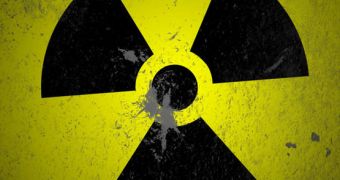Tepco, high officials in Japan and even specialists working with the International Atomic Energy Agency say that, at least for the time being, the situation at the Fukushima nuclear plant is well under control. Greenpeace disagrees, and argues that the facility is dealing with a “permanent crisis.”
In a blogpost on the issue, the organization details that, each day, several hundred tons of contaminated water work their way out of the crippled nuclear plant's reactors.
Apparently, Tepco has managed to capture and store most of it, but, since it has more contaminated water to deal with than it can possibly accommodate for, it is now thinking about dumping at least part of it in the nearby ocean.
Thus, there are now about 1,000 storage tanks in use at Fukushima, and some say that the company will run out of storage space in about two years' time.
According to Greenpeace, the company plans to use a so-called Advanced Liquid Processing System to clean the water before allowing it to seep into the ocean.
The problem is that, as far as Greenpeace is concerned, this decontamination plan is by no means as reliable as Tepco would like people to think it is.
“The problem is that ALPS [Advanced Liquid Processing System] hasn’t been the most reliable of systems at Fukushima. Of the three systems in use, two had to be shut down for repairs earlier this year when it was found they were being corroded by the very water they were supposed to decontaminate.”
“Last week one of them was found to be leaking hydrochloric and was shut down again,” Greenpeace writes on its website.
What's interesting is that, as mentioned, both high officials in Japan and the International Atomic Energy Agency believe that it makes sense for some of this water to be dumped in the ocean.
“You cannot keep storing the water forever. We have to make a choice comparing all risks involved,” Shinichi Tanaka, chairman of Japan's Nuclear Regulation Authority reportedly said in a statement.
“Controlled discharge is a regular practice in all the nuclear facilities in the world. And what we are trying to say here is to consider this as one of the options to contribute to a good balance of risks and to stabilize the facility for the long term,” specialist Juan Carlos Lentijo also said on behalf of the Agency.
Greenpeace says that, all things considered, neither Tepco and Japan's Nuclear Regulation Authority, nor the International Atomic Energy Agency can be trusted.
The organization is asking that the water not be dumped in the ocean, and stresses that, ALPS or no ALPS, whatever water comes from Fukushima has the potential to harm marine ecosystems and even have a negative effect on public health.
“The problem is, TEPCO and the NRA are not to be trusted. They have betrayed people’s trust too many times since the nuclear crisis began. And what about the IAEA? It’s difficult to trust them either. It’s a pro-nuclear organization whose job it is to protect the nuclear industry not the environment or people’s health,” Greenpeace says.
“Although the ocean covers nearly two-thirds of the surface of the Earth, it is still vulnerable to human influences, including dumping of waste. These contaminates can have a serious impact on marine life and ecosystems. Toxins and contaminants in the ocean find their way into the food chain, and into our bodies,” the organization stresses.

 14 DAY TRIAL //
14 DAY TRIAL //